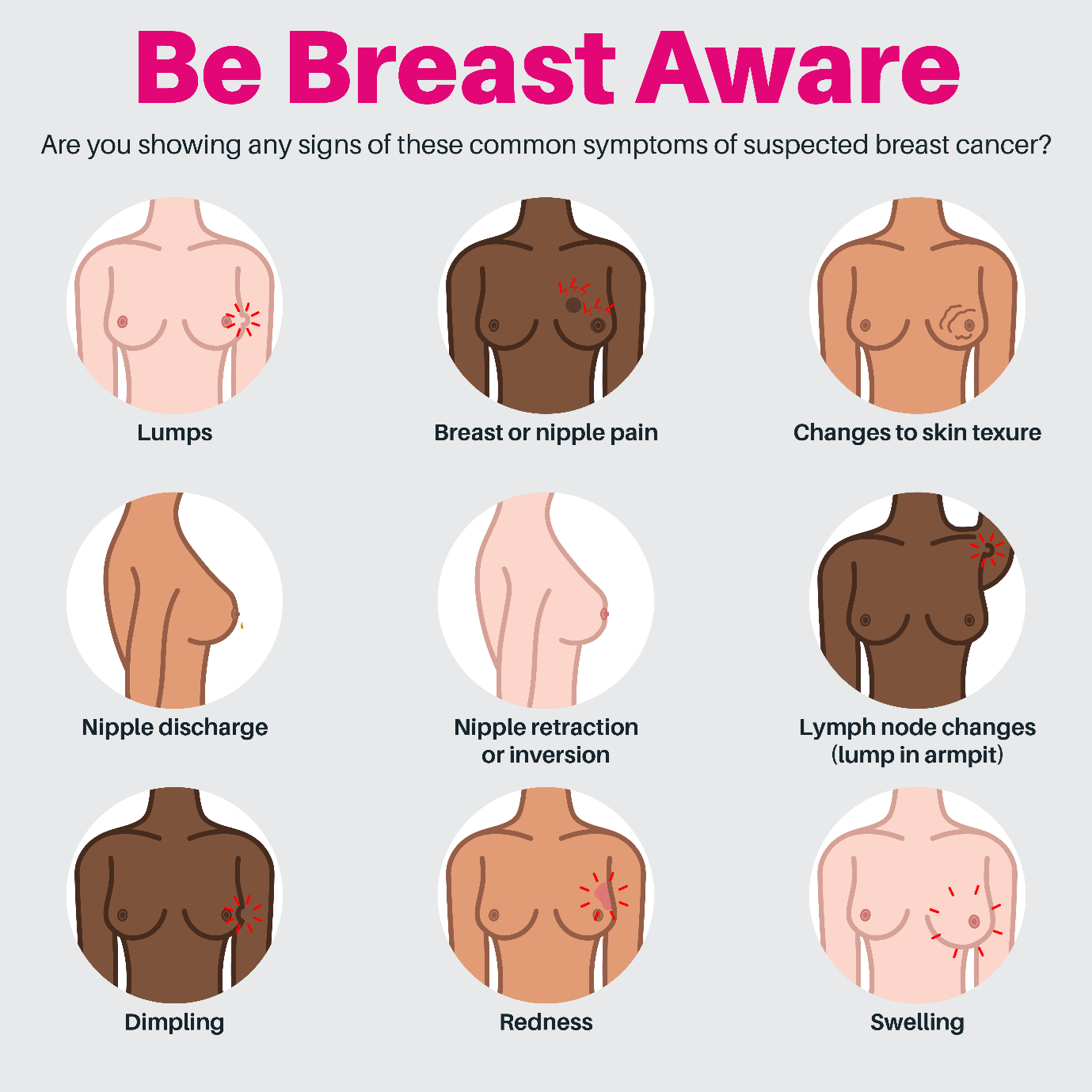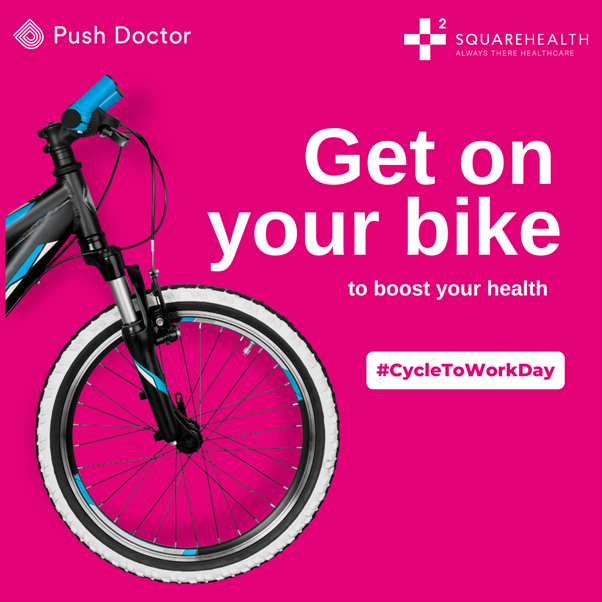By Push Doctor
The stages of menopause explained
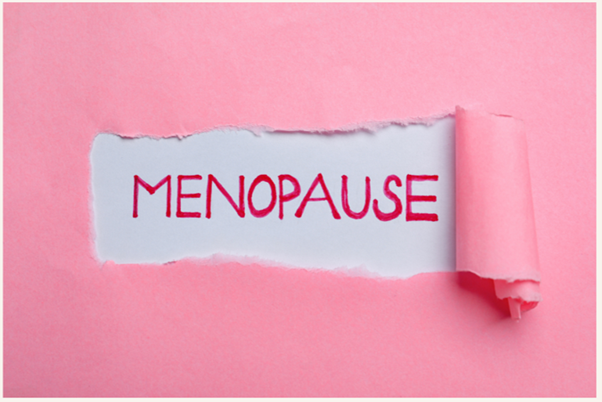
The stages of menopause explained
Menopause is a significant stage in a woman's life, and everyone will have their own unique experience with it, which will affect everyone differently.
You've probably heard the terms peri-menopausal, menopause, post-menopausal, and others that describe the menopausal journey you're about to embark on, but what exactly do they mean? What age and typical symptoms are associated with these 'phases' of menopause?
We'll go over and explain the menopause timeline so you know what to expect and where you might be in the 'menopause' cycle. This should only be used as a guideline because menopause is as individual as your fingerprint, and everyone will experience it in their own way.
Let’s start by explaining ‘what is menopause’?
Menopause is part of a normal process for women. Literally, the term means the end of menstrual periods, but in general usage, it describes the transition from regular menstrual periods to irregular periods and eventually to a point where the periods stop. Menstrual bleeding stops as the level of oestrogen and progesterone falls to a level when they do not stimulate the lining of the womb (endometrium) to become rich in blood and therefore does not bleed.
The stages of menopause
Early menopause – before aged 45
It can happen in your 30s or even earlier, and it affects about 5% of the population before the age of 45. The cause of premature menopause will be unknown in 90% of women. Cancer treatments or other surgeries may be among the causes.
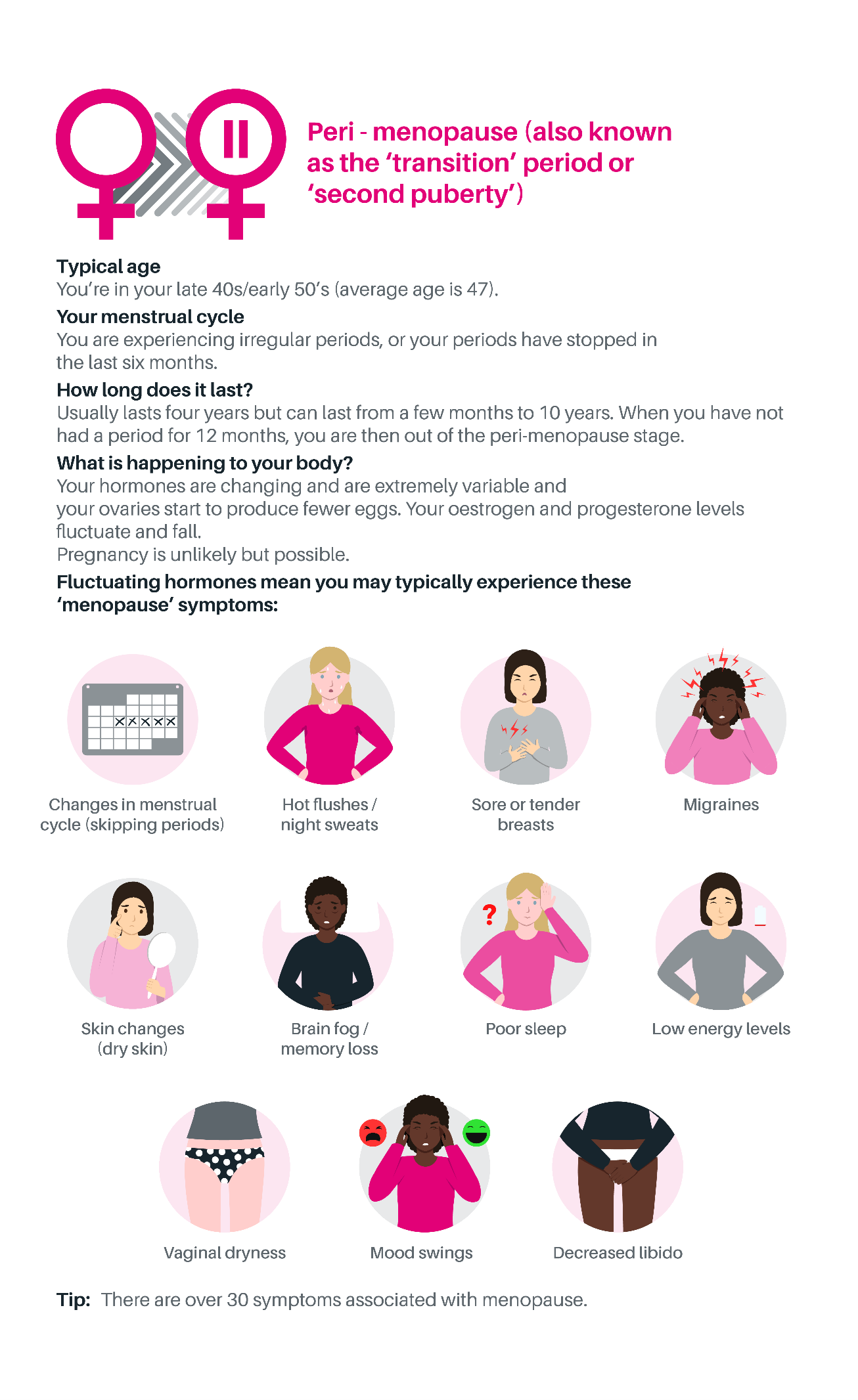
Post - menopausal
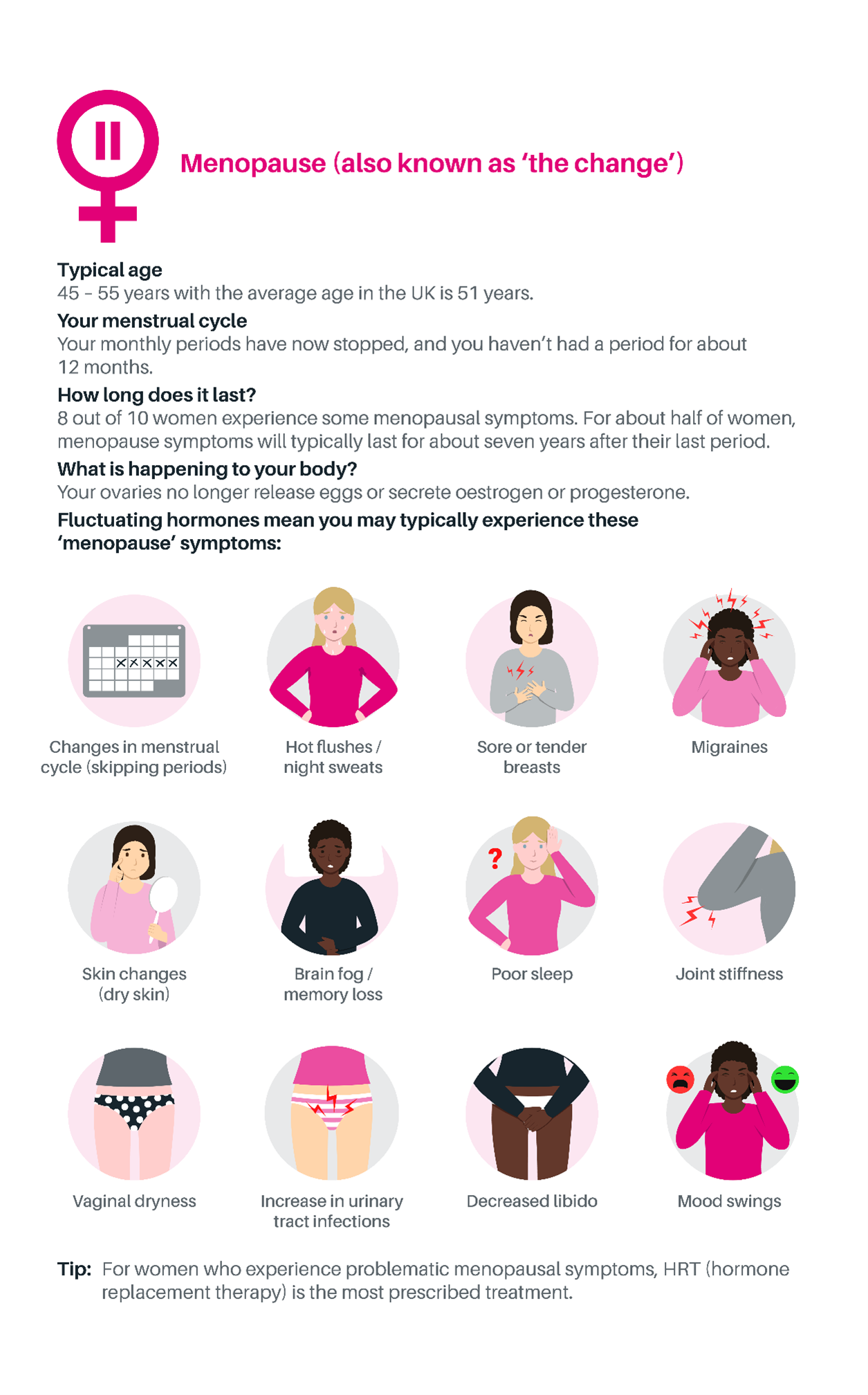
Post - menopausal

What can I do to ease menopause symptoms?
Menopause can cause fatigue, lack of motivation, loss of confidence, anxiety, and low self-esteem. You can, however, take steps to help ease some of the typical symptoms. Here are some recommendations:
- Rest. Try and keep a consistent bedtime routine in order to set yourself up for a good night’s sleep. If you are being troubled by night sweats, ensure your bedroom is well aired and that bedding, and night clothes are made from natural fibres.
- Exercise. Keeping a regular exercise routine (even if you only have time for a 15-minute walk in your lunch break) helps with our mental health and boosts our natural happy hormones (endorphins) in our bodies.
- Don’t smoke.
- Eat for your mind. Eat a well-balanced diet and reduce your intake of processed foods, fats, salts, and sugars.
- Mental stimulation. Reading, learning a new skill or language, or engaging in a hobby can all help lift our spirits by focusing our energy on a positive outlet for our emotions.
- Avoid alcohol. Reduce alcohol consumption if possible as it can aggravate some symptoms.
- Socialising with family and friends. They can offer you support and share your concerns.
- Practise relaxation and mindfulness. Mindfulness is simply being aware. Knowing what is going on mentally, emotionally, and physically in each moment and then choosing how to respond rather than being at the mercy of knee-jerk reactions. You pause, even if only for a few moments, and choose to enter your body, breathe, and let everything settle. This activates the relaxing parasympathetic nervous system, slowing your heart rate and relieving muscle tension.
Speaking with a medical professional
If you want to talk about your symptoms and what treatments are available to you, then contact your GP for further information.
You can also visit these websites which have a wealth of information on menopause.
